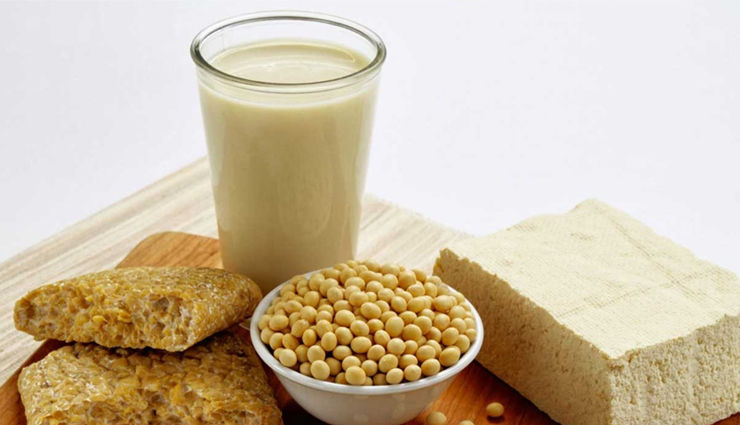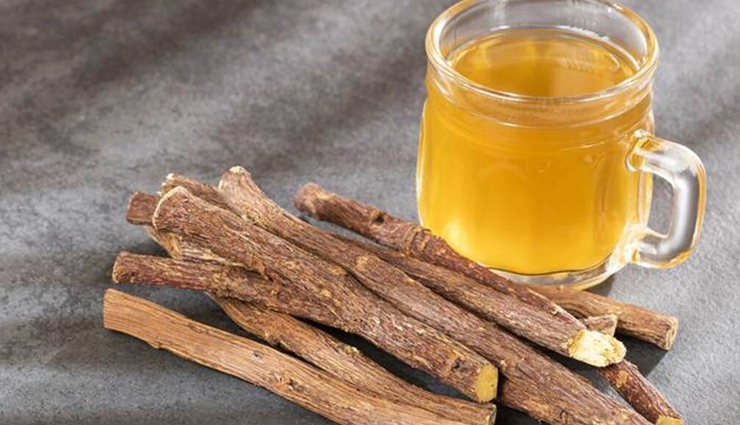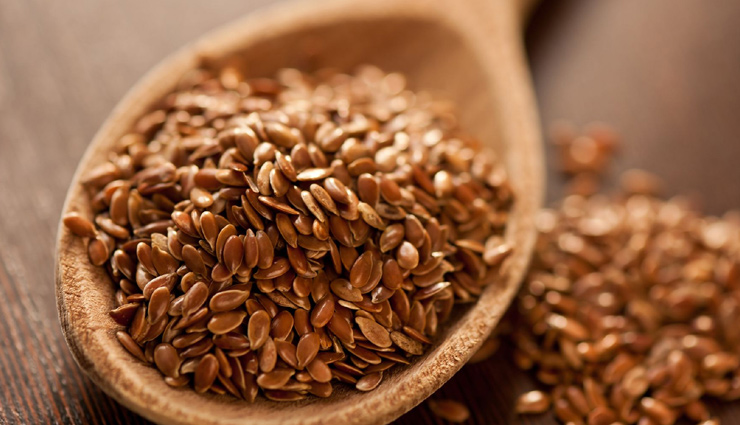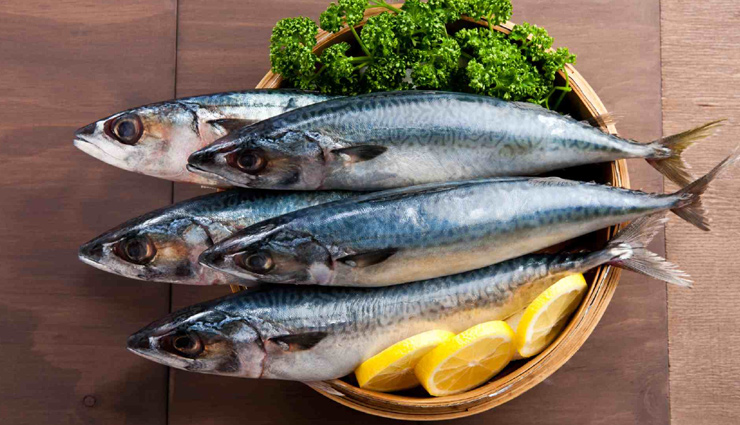- Home›
- Healthy Living›
- 6 Foods That Will Help To Lower Testosterone In Females
6 Foods That Will Help To Lower Testosterone In Females
By: Priyanka Maheshwari Sun, 24 Sept 2023 6:06:02

Testosterone is a hormone typically associated with males, but it also plays a crucial role in females, albeit in lower quantities. While it's true that testosterone is predominantly produced in the testes in men, it's worth noting that females produce testosterone as well, primarily in the ovaries and in smaller amounts in the adrenal glands.
In females, testosterone serves several essential functions, even though it's typically present in significantly lower concentrations than in males. It's important to note that the levels of testosterone in females are significantly lower than those in males. Imbalances in testosterone levels, whether too high or too low, can have various health implications. Conditions like polycystic ovary syndrome (PCOS) can lead to elevated testosterone levels in women, causing symptoms such as irregular menstrual cycles, acne, and excess hair growth. Conversely, low testosterone levels in women can also result in health issues, including fatigue and reduced bone density.

# Soy-based Products
Research findings indicate that regular consumption of soy products may lead to reduced testosterone levels. One study was carried out to examine the impact of soy protein on the reproductive hormones of men, and the outcomes indicated a decrease in testosterone levels after a 54-day period of soy protein consumption. Soy contains a substantial quantity of isoflavones, a type of phytoestrogen that mimics the actions of human estrogen. Another investigation observed a decline in prostate weight and testosterone levels in rats following soy consumption. Although these findings appear encouraging, further research involving women is necessary to gain a comprehensive understanding of the relationship between soy products and testosterone levels.

# Mint
Mint is primarily recognized for its ability to alleviate digestive discomfort. Research indicates that mint might have the potential to lower testosterone levels. An investigation was carried out to assess the impact of spearmint tea on women suffering from PCOS. After a 30-day trial period, the findings revealed a notable reduction in overall testosterone levels. Likewise, in an animal study, the administration of spearmint tea for a period of 20 days resulted in a decrease in testosterone levels and body weight among rats afflicted with PCOS.

# Licorice Root
For many years, licorice has been employed as a therapeutic agent in Chinese medicine due to its pharmacological attributes. Recent research has suggested that licorice root may have a substantial impact on hormone equilibrium within the body. An investigation was undertaken to assess the impact of licorice on serum testosterone levels in menstruating healthy women. Remarkably, the study revealed a notable reduction in serum testosterone levels within just the first month of the experiment.

# Flaxseeds
Several studies have indicated a potential association between flaxseeds and the reduction of testosterone levels. In a preliminary investigation, men diagnosed with prostate cancer were directed to follow a diet low in fat and enriched with flaxseeds for a period of 34 days. The outcomes of this study revealed a noteworthy decline in both total and serum testosterone levels. Similarly, a case study involving a woman with PCOS reported a reduction in testosterone levels after four months of incorporating flaxseed supplements into her diet.

# Tea
Scientific evidence hints at the potential impact of tea consumption on testosterone levels within the body. To explore this further, a study was undertaken to examine the effects of spearmint tea on women diagnosed with PCOS. Over a span of one month, participants were instructed to consume spearmint tea twice daily, in contrast to a placebo herbal tea. Following this 30-day period, the participants exhibited a notable decrease in both total and free testosterone levels.

# Fish
Fish is rich in omega-3 fatty acids, which have been linked to the reduction of androgen levels in women. To explore this further, a study was conducted to examine the impact of omega-3 supplements on overweight women diagnosed with PCOS. Over an 8-week period, these women were given either 3 grams of omega-3 supplements or a placebo. The findings from the study revealed that the women who received the omega-3 supplements exhibited lower testosterone levels compared to those in the placebo group. Additionally, integrating regular exercise and a balanced diet can also contribute to enhancing testosterone levels in women.





